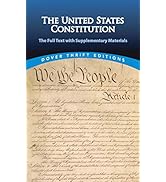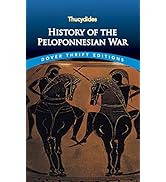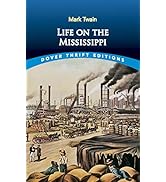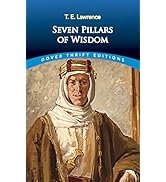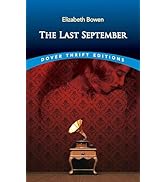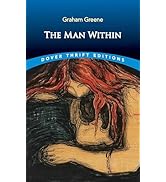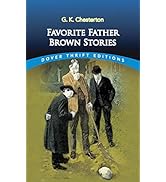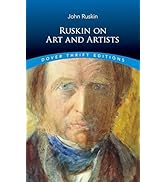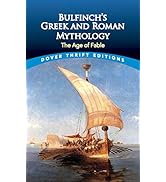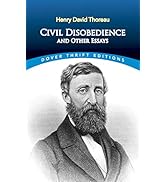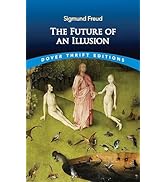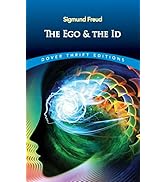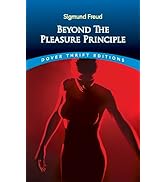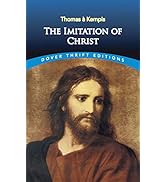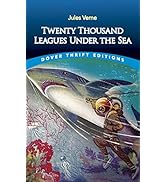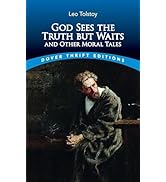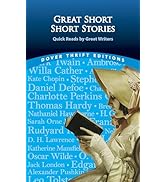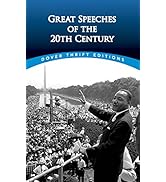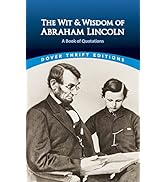
Enjoy fast, free delivery, exclusive deals, and award-winning movies & TV shows with Prime
Try Prime
and start saving today with fast, free delivery
Amazon Prime includes:
Fast, FREE Delivery is available to Prime members. To join, select "Try Amazon Prime and start saving today with Fast, FREE Delivery" below the Add to Cart button.
Amazon Prime members enjoy:- Cardmembers earn 5% Back at Amazon.com with a Prime Credit Card.
- Unlimited Free Two-Day Delivery
- Streaming of thousands of movies and TV shows with limited ads on Prime Video.
- A Kindle book to borrow for free each month - with no due dates
- Listen to over 2 million songs and hundreds of playlists
- Unlimited photo storage with anywhere access
Important: Your credit card will NOT be charged when you start your free trial or if you cancel during the trial period. If you're happy with Amazon Prime, do nothing. At the end of the free trial, your membership will automatically upgrade to a monthly membership.

Download the free Kindle app and start reading Kindle books instantly on your smartphone, tablet, or computer - no Kindle device required.
Read instantly on your browser with Kindle for Web.
Using your mobile phone camera - scan the code below and download the Kindle app.



 Audible sample
Audible sample Follow the author
OK
On Liberty (Dover Thrift Editions: Philosophy) Paperback – June 19, 2002
Purchase options and add-ons
Discussed and debated from time immemorial, the concept of personal liberty went without codification until the 1859 publication of On Liberty. John Stuart Mill's complete and resolute dedication to the cause of freedom inspired this treatise, an enduring work through which the concept remains well known and studied.
The British economist, philosopher, and ethical theorist's argument does not focus on "the so-called Liberty of the Will…but Civil, or Social Liberty: the nature and limits of the power which can be legitimately exercised by society over the individual." Mill asks and answers provocative questions relating to the boundaries of social authority and individual sovereignty. In powerful and persuasive prose, he declares that there is "one very simple principle" regarding the use of coercion in society — one may only coerce others either to defend oneself or to defend others from harm.
The new edition offers students of political science and philosophy, in an inexpensive volume, one of the most influential studies on the nature of individual liberty and its role in a democratic society.
- Print length112 pages
- LanguageEnglish
- PublisherDover Publications
- Publication dateJune 19, 2002
- Reading age14 years and up
- Dimensions4.9 x 0.4 x 8 inches
- ISBN-109780486421308
- ISBN-13978-0486421308
- Lexile measure1440L
Book recommendations, author interviews, editors' picks, and more. Read it now.
Frequently bought together

More items to explore
From the brand

-

Debuting in 1990, the Thrift Editions library of classic literature is a top choice for teachers, students, librarians, and recreational readers around the world. Dover’s longstanding mission of exceptional value has consistently offered excellence in classic fiction, nonfiction, plays, and poetry.
Dover Thrift Editions are low priced, compact (5"x8"), complete and unabridged.
-
Are there any collections of stories or poetry in the Dover Thrift Editions?
In addition to single title books, Dover offers books of anthologies in fiction, non-fiction and poetry. Check out our Thrift Editions of short stories, literary collections, poetry, gothic and horror, SciFi/Fantasy, crime/mystery/thrillers and more. Happy Reading!
What formats are the Thrift Editions available in?
All are available in an easy to carry paperback version and most titles are available for the Kindle e-reader.
-
American History/History
-
Biography and Autobiography
-
Black History
-
Classic Novels
-
Crime, Mystery and Thrillers
-
Gothic and Horror
-
Literary Collections
-
Philosophy
-
Plays
-

-
Political Science
-
Poetry
-
Psychology
-
Religion
-
SciFi and Fantasy
-
Short Stories
-
Speeches and Quotations
From the Publisher


“If all mankind minus one, were of one opinion, and only one person were of the contrary opinion, mankind would be no more justified in silencing that one person, than he, if he had the power, would bejustified in silencing mankind.”
Discussed and debated from time immemorial, the concept of personal liberty went without codification until the 1859 publication of On Liberty.
Written by the most influential English philosopher of the 19th century - John Stuart Mill (1806–73)
In powerful and persuasive prose, Mill asks and answers provocative questions relating to the boundaries of social authority and individual sovereignty.
This new edition offers students of political science and philosophy, in an inexpensive volume, one of the most influential studies on the nature of individual liberty and its role in a democratic society.

Editorial Reviews
From the Back Cover
Discussed and debated from time immemorial, the concept of personal liberty went without codification until the 1859 publication of "On Liberty." John Stuart Mill's complete and resolute dedication to the cause of freedom inspired this treatise, an enduring work through which the concept remains well known and studied.
The British economist, philosopher, and ethical theorist's argument does not focus on "the so-called Liberty of the Will but Civil, or Social Liberty: the nature and limits of the power which can be legitimately exercised by society over the individual." Mill asks and answers provocative questions relating to the boundaries of social authority and individual sovereignty. In powerful and persuasive prose, he declares that there is "one very simple principle" regarding the use of coercion in society one may only coerce others either to defend oneself or to defend others from harm.
The new edition offers students of political science and philosophy, in an inexpensive volume, one of the most influential studies on the nature of individual liberty and its role in a democratic society."
Product details
- ASIN : 0486421309
- Publisher : Dover Publications
- Publication date : June 19, 2002
- Edition : 1st
- Language : English
- Print length : 112 pages
- ISBN-10 : 9780486421308
- ISBN-13 : 978-0486421308
- Item Weight : 10.4 ounces
- Reading age : 14 years and up
- Dimensions : 4.9 x 0.4 x 8 inches
- Lexile measure : 1440L
- Best Sellers Rank: #63,047 in Books (See Top 100 in Books)
- #1 in Utilitarian Philosophy
- #65 in Political Philosophy (Books)
- #179 in History & Theory of Politics
- Customer Reviews:
About the author

Discover more of the author’s books, see similar authors, read book recommendations and more.
Customer reviews
Customer Reviews, including Product Star Ratings help customers to learn more about the product and decide whether it is the right product for them.
To calculate the overall star rating and percentage breakdown by star, we don’t use a simple average. Instead, our system considers things like how recent a review is and if the reviewer bought the item on Amazon. It also analyzed reviews to verify trustworthiness.
Learn more how customers reviews work on AmazonCustomers say
Customers find this philosophical work to be an important read for those interested in political philosophy, with one noting its relevance to modern times. Moreover, the book receives positive feedback for its value, with customers describing it as an absolute must-read. However, the readability receives mixed reactions, with some finding it easier to understand while others find it tough to read.
AI-generated from the text of customer reviews
Select to learn more
Customers appreciate the philosophical content of the book, describing it as an important read for political philosophy with brilliant reasoning. One customer notes that the ideas remain relevant to modern times, while another mentions it provides a great account of America's Founding Fathers' principles.
"...These ideas can be captivating, sometimes to the point of detriment...." Read more
"...I gave it 4 stars because I found that it provided guidance on personal freedom, but not enough to be really helpful." Read more
"...Mill delivers his arguments in a much less passionate though logical way...." Read more
"...and limits, is the basis of this work, and Mill provides the brilliant reasoning that makes on question his or her own situation...." Read more
Customers find the book excellent and worth studying, with one mentioning it doesn't take too long to read.
"...Excellent read." Read more
"...topic and are looking for some historical backdrop, the book doesn't take too long to read...." Read more
"...of the issues presented and paves the way for an enjoyable reading adventure... sherif" Read more
"A solid work that everyone should read, regardless of political alignment. How do we balance societal well being with personal liberty?..." Read more
Customers have mixed opinions about the readability of the book, with some finding it easier to understand and well-articulated, while others describe it as tough to read.
"...The author is clearly very intelligent and writes well...." Read more
"This is one of Stuart Mills' best known works. It is difficult to follow, difficult to understand his style, but it is great when you begin to..." Read more
"...However, this book will provide you with so much knowledge and insight into a topic that will pervade your education experience...." Read more
"...paragraphs, and never ending sentences... I just found it hard to follow it at some places...." Read more
Reviews with images
Personal liberty and societal prosperity is a balance
Top reviews from the United States
There was a problem filtering reviews. Please reload the page.
- Reviewed in the United States on November 23, 2020Liberty is something we in the western world take for granted these days, and it’s important to remember that humankind was not always so generously geared towards personal autonomy. Published in 1859, Mill was at the forefront of political science and philosophy thinkers when he proffered his ideas on the subject. “Over himself, over his own body and mind, the individual is sovereign,” he writes.
Once we move past this initial foray into the principles of liberty, Mill furthers his offered opinions. He warns us about the oppression of the ideals of the majority towards the minority. These ideas can be captivating, sometimes to the point of detriment. We can see it in society today, how so many of us find opposing ideas (especially political ones) truly intolerable. If we have progressed to a point in society where we accept other people’s religions and sexualities, why do we struggle so much to accept different ideological points of view? On this, Mill says that “There is no parity between the feeling of a person for his own opinion, and the feeling of another who is offended at his holding it; no more than between the desire of a thief to take a purse, and the desire of the right owner to keep it.” I find this sentiment to be alarmingly true, and may we ring all the bells in the land with its message.
The truth is that there is a necessity for opposition to ideas. That is how shaky ideas become strong or how weak ideas are proven anemic. There is tremendous danger in relegating popular ideas to the forefront of public opinion and vilifying opposition. The best ideas are the ones that have continually stood the test of time, repelling opposition not with crushing force, but with uplifting power. For example, ancient tribes used to sacrifice human lives to the Gods for the hope of a better harvest. As civilizations grew, they eventually decided life shouldn’t be ended so simply. Death then became a punishment for wrongdoing, and over the course of centuries slowly transitioned from barbaric to (relatively) humane. Eventually, as a more modern society emerged, we came to condemn the taking of human life with more frequency, until now it is a rarity. History shows us that the acceptable reasons for ending a human life has been a debate for the entirety of humanity. The reason we live in a world today where you don’t lose your life for stealing a sheep is because enough people, over time, spoke up and said it was a bad idea, preferring alternative punishments. This is but an example of how different opinions on a single subject are required to continually clash and debate as to what is most correct. Here we see the good idea (valuing human life) winning over the bad (seeing human life as insignificant) due to the trials of time and ideological combat.
By today’s standards, much of what Mill writes would be considered Libertarian ideology. Basically, get the government and any oppressive bodies of influence out of the individual’s life. The only exception is when an individual would bring harm to another. This is where the government would have an obligation to step in, ultimately in the pursuit of a safer society for all.
One of the areas that becomes grey is the relationship between parents and their children. Parents have a moral obligation to raise their children to the best of their ability, but what happens if a man has no desire to be a part of his child’s life. Can society demand that he participate against his will? What about a contrary case study with a parent who is raising a child to be an abomination. Does a ruling body have authority to step in and violate the liberty of the parent on behalf of the wellbeing of the child? The answers are tricky and each scenario must be evaluated case by case. Even still, decisions made cannot be assured with one hundred percent certainty and approval from all parties. Hopefully, over time and continual debate, humanity will continue to get better at solving this age-old dilemma.
This balance between societal prosperity and personal liberty is constantly teetering back and forth. It is the crux at where we live. Something I think important to remember, phrased quite eloquently by Mill, goes like this: “In the human mind, one-sidedness has always been the rule, and many-sidedness the exception.” Essentially, if we want to keep our balance as a society, it is important to hear and understand people’s differing ideas. Only with this mutual respect for each other’s ideological liberties can we continue to move forward collectively.
 5.0 out of 5 starsLiberty is something we in the western world take for granted these days, and it’s important to remember that humankind was not always so generously geared towards personal autonomy. Published in 1859, Mill was at the forefront of political science and philosophy thinkers when he proffered his ideas on the subject. “Over himself, over his own body and mind, the individual is sovereign,” he writes.
5.0 out of 5 starsLiberty is something we in the western world take for granted these days, and it’s important to remember that humankind was not always so generously geared towards personal autonomy. Published in 1859, Mill was at the forefront of political science and philosophy thinkers when he proffered his ideas on the subject. “Over himself, over his own body and mind, the individual is sovereign,” he writes.Personal liberty and societal prosperity is a balance
Reviewed in the United States on November 23, 2020
Once we move past this initial foray into the principles of liberty, Mill furthers his offered opinions. He warns us about the oppression of the ideals of the majority towards the minority. These ideas can be captivating, sometimes to the point of detriment. We can see it in society today, how so many of us find opposing ideas (especially political ones) truly intolerable. If we have progressed to a point in society where we accept other people’s religions and sexualities, why do we struggle so much to accept different ideological points of view? On this, Mill says that “There is no parity between the feeling of a person for his own opinion, and the feeling of another who is offended at his holding it; no more than between the desire of a thief to take a purse, and the desire of the right owner to keep it.” I find this sentiment to be alarmingly true, and may we ring all the bells in the land with its message.
The truth is that there is a necessity for opposition to ideas. That is how shaky ideas become strong or how weak ideas are proven anemic. There is tremendous danger in relegating popular ideas to the forefront of public opinion and vilifying opposition. The best ideas are the ones that have continually stood the test of time, repelling opposition not with crushing force, but with uplifting power. For example, ancient tribes used to sacrifice human lives to the Gods for the hope of a better harvest. As civilizations grew, they eventually decided life shouldn’t be ended so simply. Death then became a punishment for wrongdoing, and over the course of centuries slowly transitioned from barbaric to (relatively) humane. Eventually, as a more modern society emerged, we came to condemn the taking of human life with more frequency, until now it is a rarity. History shows us that the acceptable reasons for ending a human life has been a debate for the entirety of humanity. The reason we live in a world today where you don’t lose your life for stealing a sheep is because enough people, over time, spoke up and said it was a bad idea, preferring alternative punishments. This is but an example of how different opinions on a single subject are required to continually clash and debate as to what is most correct. Here we see the good idea (valuing human life) winning over the bad (seeing human life as insignificant) due to the trials of time and ideological combat.
By today’s standards, much of what Mill writes would be considered Libertarian ideology. Basically, get the government and any oppressive bodies of influence out of the individual’s life. The only exception is when an individual would bring harm to another. This is where the government would have an obligation to step in, ultimately in the pursuit of a safer society for all.
One of the areas that becomes grey is the relationship between parents and their children. Parents have a moral obligation to raise their children to the best of their ability, but what happens if a man has no desire to be a part of his child’s life. Can society demand that he participate against his will? What about a contrary case study with a parent who is raising a child to be an abomination. Does a ruling body have authority to step in and violate the liberty of the parent on behalf of the wellbeing of the child? The answers are tricky and each scenario must be evaluated case by case. Even still, decisions made cannot be assured with one hundred percent certainty and approval from all parties. Hopefully, over time and continual debate, humanity will continue to get better at solving this age-old dilemma.
This balance between societal prosperity and personal liberty is constantly teetering back and forth. It is the crux at where we live. Something I think important to remember, phrased quite eloquently by Mill, goes like this: “In the human mind, one-sidedness has always been the rule, and many-sidedness the exception.” Essentially, if we want to keep our balance as a society, it is important to hear and understand people’s differing ideas. Only with this mutual respect for each other’s ideological liberties can we continue to move forward collectively.
Images in this review
- Reviewed in the United States on May 3, 2025On Liberty is an essay published in 1859 by the English philosopher John Stuart Mill. Excellent read.
- Reviewed in the United States on May 30, 2024I have the Kindle version. The author is quite intelligent and has thought carefully about the subject. His principle that a person should have liberty to do or not to do those things that only affect that person seems compelling until one reads all the qualifications that the author believes society may place upon this principle.
The author recognizes that societies generally form customs that govern a person's conduct more completely than duly enacted legal compulsions. Customs may arise from the opinions of the broad of humanity, which may not reflect the best opinion. He argues in favor of permitting freely the formation of opinions so long as their expression does not harm others. As I write this in 2024, one can always find those who express outrage at any opinion. In the US today if someone opined that the sun rises in the east, I expect the media to find someone to denounce this thought.
When the author wrote this the separation of state and church was not nearly as total as it is today. A 21st century reader may well wonder at what practices the author rails against. He does launch an unexpected attack on the Mormon religion, which I hadn't realized that the English were even aware of in the 19th century.
The author is clearly very intelligent and writes well. Many of the fights between society and the individual that he examines occur today, but the subject matter has changed from the topics that he describes.
If you have an interest in the topic and are looking for some historical backdrop, the book doesn't take too long to read. I gave it 4 stars because I found that it provided guidance on personal freedom, but not enough to be really helpful.
- Reviewed in the United States on March 11, 2025Should be included in your library
- Reviewed in the United States on January 14, 2016As a utilitarianist, Mill delivers his arguments in a much less passionate though logical way. While this makes it sound like a boring read (well, maybe sometimes but not often) it actually provides a style which many philosophers hesitated. Instead of making existential pleas for his case, Mill simply derives the value of each point he makes. On women's rights, he is clearly pro, but not for any moral reason but because women are just as human as men and their equality means they should be utilized fully in thinking and labor.
Much of the book focuses on discourse and how it should be uninhibited. Utilitarianism is a great tool for such ends. For instance, when environmentalists claim that the planet is being raped and that we have a moral obligation to stop it, a better argument may be the financial and quality of life costs we are accruing.
Mill is one of the great philosophers and has had great influence in America. There's a reason for it: a unique perspective applicable to the greater parts of our society.
- Reviewed in the United States on May 24, 2013What can be said of a work that is so influential and already so praised? Not much. What I can provide is a helpful hint for any student who is either curious or apprehensive about reading this: read it. This may seem obvious, but as any students knows, reading suggested readings can be . . . less than pressing. However, this book will provide you with so much knowledge and insight into a topic that will pervade your education experience. Liberty, its power and limits, is the basis of this work, and Mill provides the brilliant reasoning that makes on question his or her own situation. Libertarians hold this book in high regard, and with good reason, however, this political group should not be the only ones to esteem such a crucial work in Western philosophy. If more minds actively dissected this work, as those who are being forced to read this should understand, perhaps a greater understanding of liberty and the functions of society in general would be attained.
Top reviews from other countries
 Jon HimmensReviewed in Canada on April 27, 2022
Jon HimmensReviewed in Canada on April 27, 20225.0 out of 5 stars Good print, 1 typeset error
It’s a good copy of the classic essay, it’s well formatted and easy to read.
Required reading for a bunch on my courses so a good book to have around. Lots of room to annotate.
Heads up, my copy had a typeset error where the index had an error message in it.
-
 Cliente AmazonReviewed in Brazil on January 27, 2020
Cliente AmazonReviewed in Brazil on January 27, 20205.0 out of 5 stars Excelente!
A visão desse autor esclarece o que liberdade filosófica ou social. Ligeiramente diferente do liberalismo econômico. Mostra também os limites entre a liberdade individual, social e estatal.
-
 RickardReviewed in Sweden on August 1, 2023
RickardReviewed in Sweden on August 1, 20232.0 out of 5 stars Dålig kvalitet
Skulle köpt något dyrare för att få en bättre produkt
-
 アマゾン太郎Reviewed in Japan on December 19, 2012
アマゾン太郎Reviewed in Japan on December 19, 20123.0 out of 5 stars 注釈無し
On Liberty (Dover Thrift Editions) [ペーパーバック]
本の内容ではなく体裁などについてのレビュー
紙質はわら半紙とか漫画雑誌のような感じ。
最初にミルの略歴が2ページほど載っている、ミル自身による原注はあるが、本文の注釈などは無い。
これならキンドルストアやプロジェクトグーテンベルグなどで無料で手に入る。
解説や説明がほしければ他のバージョンのを買ったほうがいい。
 SandybcnReviewed in Spain on August 16, 2019
SandybcnReviewed in Spain on August 16, 20195.0 out of 5 stars Excellent. A classic
Ha llegado mucho antes de lo esperado. Arrived before scheduled. Perfect.

















